London and Oxford celebrate the memory of exile in the United Kingdom
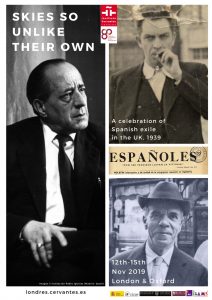
Instituto Cervantes in London has organised a commemorative programme which pays tribute to the Spanish Republican exiles on the occasion of the 80th anniversary of the end of the Civil War. The programme is entitled “Skies so unlike their own: a celebration of Spanish exile in the UK, 1939” and will feature conferences, round tables, book presentations, a film screening and a concert. All events are free and open to the public and will take place between November 12th and 15th in London and Oxford.
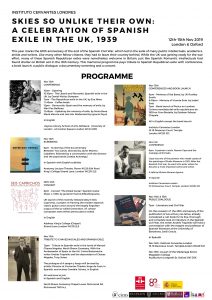
One of the most important features of the program is the open tribute to Manuel Chaves Nogales. It will take place at the grave of this Sevillian writer in the North Sheen cemetery.
The exile of numerous Spanish intellectuals, academics, artists and writers to the United Kingdom took place while the British themselves prepared to face World War II. With the reception of important names like Luis Cernuda, Manuel Chaves Nogales or Arturo Barea, the United Kingdom was, once again, the capital of Spanish intelligence, as it had been in the 19th century during the exile of liberals and romantics.

Reintegration of Spanish memories
“With this program we conclude our homage to Spanish exile,” says director of Institute Cervantes of London, Ignacio Peyró, “a tribute that began in 2018 with the transfer of the Arturo Barea archive to the Bodleian Library in Oxford and continued with the exhibition dedicated to Manuel Chaves Nogales at Europe House in February of this year.”
For Peyró, “to claim exile is to reintegrate the memory of Spain, including that of those Spaniards of the exodus and the ‘crying’ of which León Felipe spoke. And paying homage to exile is also a tribute to that fair and democratic country that is contemporary Spain, of which so many exiles dreamed.”
The programme is supported by multiple companies including the Interministerial Commission for the Commemoration of the 80th Anniversary of Spanish exile and Instituto Cervantes as well as the Embassy of Spain, Magdalen College (Oxford), Birbeck University of London, King’s College Modern Language Centre, CICUS (University of Seville) and The Iberian and Latin American Music Society.
Development
The conference starts with lectures on Tuesday 12th November at Birkbeck – University of London, where professor of Spanish Literature at Kings’ College (London), Daniel Muñoz Sempere, will discuss liberal and romantic Spanish exile in the United Kingdom. Alongside him, associate researcher at Cardiff University, Eva Nieto will talk about Republican exile. Furthermore, Mari Paz Balibre (reader in Modern Spanish Literature and Cultural Studies at Birkbeck – University of London) will talk about democratic Spain and the memory of exile.
The morning of conferences will conclude with the round table “Updating the Memory of Exile”, with the participation of artist Sonia Boue, professor María Mencía and writer Lala Isla. Moderated by director of Instituto Cervantes in London, Ignacio Peyró. In this round table, each participant will discuss projects related to the memory of exile.
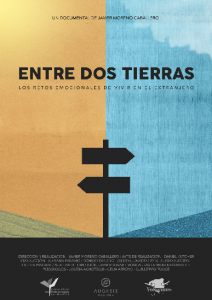
Also on November 12th, at 6pm in King’s College, the screening of the documentary Between Two Lands (in Spanish with English subtitles) directed by Javier Moreno Caballero, followed by a discussion with the director himself and the psychiatrist, Joseba Achotegui.
Between Two Lands talks about the emotional challenges of living abroad and the phenomenon known by experts as «migratory grief.» Through several recent testimonies of Spaniards, the talk will seek to understand the complexity of the experiences that immigrants must face during their experience away from their motherland.
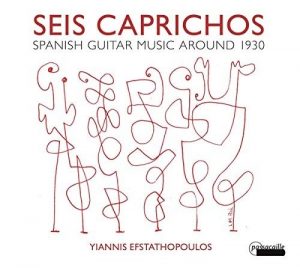
Tuesday 12th ends with the concert, The Exiled Guitar: Spanish music for guitar in the 1930s, by guitarist Yiannis Efstathopoulos, in the chapel of King’s College, a famous neo-Gothic monument.
Efstathopoulos presents this concert based on his latest album, Six Whims, Spanish music for guitar around 1930. Victims of the Generation of 27 music, the composers presented here were persecuted by Franco or had to go into exile. The works to be played by the Greek performer, a student of the music of exile, are pieces for guitar composed in a fascinating moment, when the now iconic Spanish instrument was still looking for its place in the world and formulating its identity within cultured music in Spain and in the international context.
On Wednesday 13th November at 12pm, there will be a tribute to Spanish exiles in the tomb of Manuel Chaves Nogales, in the North Sheen cemetery. It will be attended by the ambassador of Spain in the United Kingdom, Carlos Bastarreche, the writer Andrés Trapiello and the grandson of Chaves Nogales, Tony Jones.
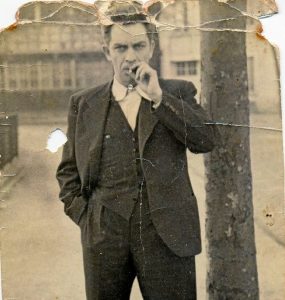
On the 75th anniversary of the death of Chaves Nogales, the planned tribute includes a reading of the prologue from, A Sangre y Fuego, in Spanish and English, by the artistic director of the Cervantes Theater, Jorge de Juan, and the actress Candela Gómez. A reading of the specially commissioned Trapiello text will also be read in honour of the occasion.
Forgotten for decades, the Sevillian writer and journalist Chaves Nogales (1897-1944) is today considered one of the most lucid and honest voices of Spanish literature in the twentieth century. He is known, above all, for the independent thought and testimonial value of books such as A Sangre y Fuego which was written about the Spanish Civil War. Killed in hard circumstances during his exile in London, Chaves Nogales was buried in a grave without a gravestone in the North Sheen Cemetery.
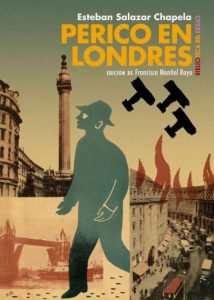
Our final event on Wednesday 13th at 6pm, takes place in the library of the Cervantes Institute in London. We will seek to recover the memory of Ilsa Barea – translator of the work of Arturo Barea – with a talk by his niece, Uli Rushby-Smith. We also want to give continuity to the different claims of the memory of the writer Vicente Soto, for which Isabel Soto, a university professor of literature and daughter of the exiled intellectual, will talk about the author and read translated fragments of his work. Finally, the reissue of the book Perico in London will be presented: Novel Chronicle of the Republican Exile of 1939 in Great Britain by Esteban Salazar Chapela. With the participation of Professor of History of the Art of the University of Seville Luis Méndez; literary publisher, Francisca Montiel, and Christina Linares, from the Renaissance Publishing House.

The following day, Thursday 14th at 6pm, in the library of the Cervantes Institute in London, we will host the conference “A Painter in Exile: Ramón Gaya and the nostalgia of El Prado”, by Miriam Moreno Aguirre, expert in the Murcian artist, about whom he has published a doctoral thesis and a monograph.
Gaya, founder of the magazine Hora de España, was one of the painters who made copies of the paintings of the Prado Museum in 1932. Since then he has exhibited them, along with Antonio Sánchez Barbudo, in the Circulating Museum of the Pedagogical Missions of the Republic, until the beginning of the Civil War. Gaya, a painter of deep influence and also a great essayist, defined the Prado Museum as “a kind of homeland” and took lessons from his works to promote a figuration compatible with pictorial modernity.
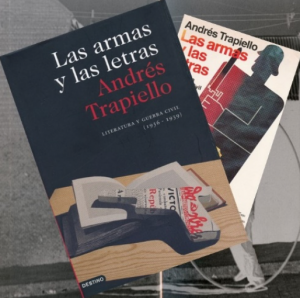
Finally, our concluding event at 7pm on the 14th November, will be a public conversation between the writer Andrés Trapiello and the essayist and professor Jordi Gracia, in celebration of the 25th anniversary of the publication of Weapons and Letters, a volume of Trapiello already considered a cult book by his free, thorough and complete look on literature in the Spanish Civil War.
On Friday 15, at 7pm, Trapiello and Gracia will hold a talk of similar characteristics in the auditorium of Magdalen College in Oxford, within the Madariaga Series with which, under the direction of Professor Juan Carlos Conde, the Cervantes Institute collaborates.


